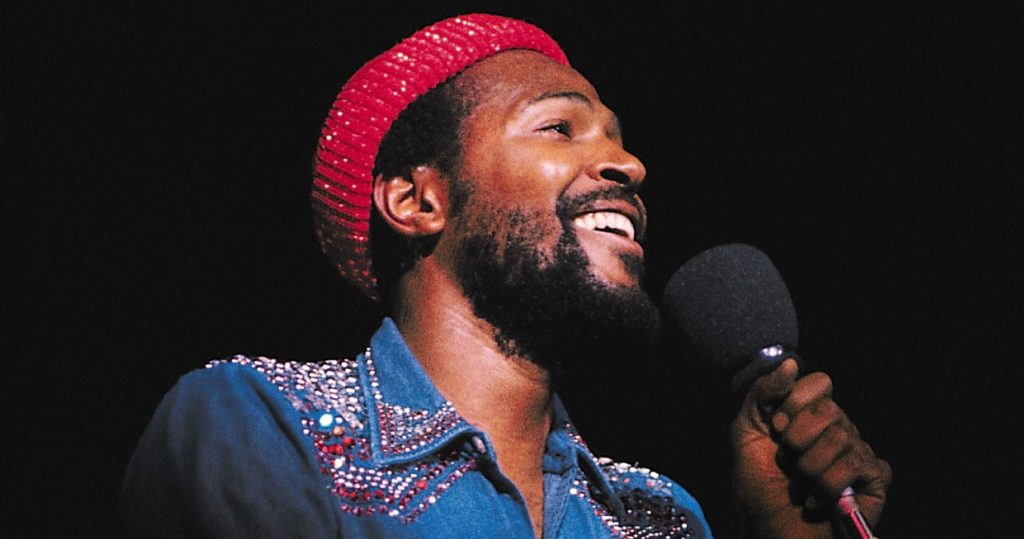A little over 10 months ago, I wrote a short piece for the Press about the enduring significance of Gil Scot Heron’s “Whitey on the Moon.” I won’t rehash the article here, but the song laid bare the myriad of ways in which America’s capitalist culture fetishizes shallow odes to human exceptionalism, often at the expense of its inhabitant’s material conditions — especially people of color.
The title of the article was “Whitey on the Moon, 48 Years Later,” and served as a concise reminder that political sentiments are more evergreen than we tend to think. I wrote the article after reading the USDA’s annual food insecurity report — I suppose that was the “news hook,” to use Journalism School jargon.
As I sit here writing almost a year later, the United Nations is gearing up for its Climate Action Summit. It just so happens another artistic relic from (I guess this is some sort of magic number) 48 years ago is coming to mind today.
The song is Marvin Gaye’s “Mercy Mercy Me.” The track is a melancholic ballad from his 1971 magnum opus What’s Going On, which also happens to be the best album ever recorded.
The song, as you probably deduced by now, is about the degradation of our natural world. Marvin Gaye was not quite as lyric-oriented as Heron; Gaye was a singer first and foremost while Heron was a poet. But the pithy nature of “Mercy Mercy Me” does not take away from the intended message.
Much like “Whitey on the Moon,” the song is worth quoting in full. The lyrics are as follows:
“Whoa, ah, mercy mercy me
Oh things ain’t what they used to be, no no
Where did all the blue skies go?
Poison is the wind that blows from the north and south and east
Whoa mercy, mercy me,
Oh things ain’t what they used to be, no no
Oil wasted on the oceans and upon our seas, fish full of mercury
Ah, oh mercy, mercy me
Ah things ain’t what they used to be, no no
Radiation under ground and in the sky
Animals and birds who live nearby are dying
Oh mercy, mercy me
Oh things ain’t what they used to be
What about this overcrowded land
How much more abuse from man can she stand?
Oh, no no, na, na na, na
My sweet Lord, na, na, na
My Lord, my sweet Lord”
“Where did all the blue skies go?” seems to be a recurring theme throughout Gaye’s work — longing for a halcyon past that may have never existed. However, “Mercy Mercy Me” takes this sentiment literally.
There’s an oft-quoted line from Talking Heads frontman David Bryne: “The better a singer’s voice, the harder it is to believe what they’re saying.” It isn’t hard to find at least some truth to this. Much like a college brochure (a favorite subject of mine — probably due to the way this dumb school shoves The Wang Center in front of people’s faces, like abusive stage-parents entering their emotionally-damaged 9 year old into a beauty pageant), an incredible voice can often distract from a lack of lyrical message and content. Gaye, I presume, is one of many exceptions. While Gaye’s lyrics aren’t as long-winded as Heron’s, it really doesn’t matter. Gaye sings as if he’s carrying the weight of the world on his shoulders. His voice has a pained tinge to it that makes you infer the deeper meaning behind it without even noticing.
When Gaye sings, “Oil wasted on the oceans and upon our seas, fish full of mercury,” the timbre of his voice suggests something deeper, perhaps an unspoken reflection on the wasted potential of humankind, subjugating the Earth’s natural gifts to the logic of a profit motive antagonistic to their survival. But rather than being didactic, Gaye chooses to project with the bittersweet flush already present in his voice — innate to his heart.
Friday, September 20, 2019 saw millions of people take to the streets in the name of combating climate change. These protests were spearheaded in part by Greta Thunberg, a 16-year-old from Sweden. The majority of the march’s participants were around the same age and probably have no knowledge of Marvin Gaye’s body of work, let alone the sentiments he shared with them. But the desire for a habitable planet remains the same. When Gaye was singing in 1972, he spoke of a desire for mercy, in hopes that people would recognize the ways in which the Earth was shapeshifting before their eyes. Today, young people speak of justice, the recognition that things will never be the same because of conscious, powerful actors, and that mass action is needed to put a halt to their destructive decisions.
Marvin Gaye left us long ago, but we should all hope to make him — and ourselves — proud.




Comments are closed.